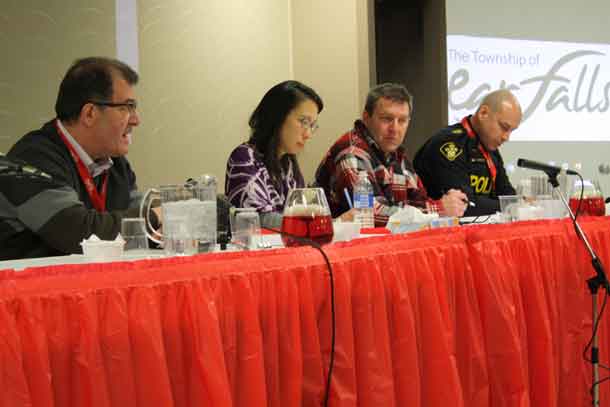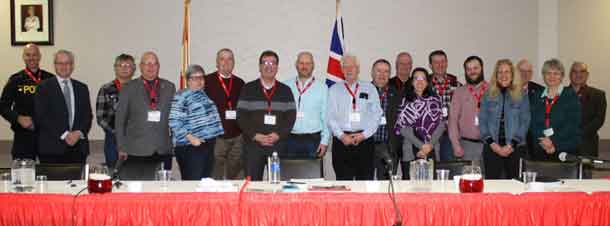

EAR FALLS – Dialogue between one another is critical to our long-term success in Northwestern Ontario. This past weekend I was pleased to spend time with local leaders and stakeholders during the Kenora District Municipal Association’s (KDMA) annual general meeting (AGM) in Ear Falls. The meeting brought together mayors, councillors, local decision-makers, and planners from across the riding. In my view, this yearly event always provides one of the best platforms for frank discussions about our region’s future.
Northwestern Ontario is a very unique place to live, and in many cases, we face challenges that most Canadians never really experience. I was encouraged by all of the talks that took place over the two days. They helped establish some key common priorities and provided a roadmap to building stronger communities throughout the riding.
Some priorities in Northwestern Ontario are apparent, including the need for more affordable housing throughout the region. During my presentation at KDMA, I was able to talk about Canada’s first ever National Housing Strategy which is a 10-year, $40-billion plan that will be implemented in collaboration with provincial and territorial governments. Simply put, I believe that every Canadian deserves a roof over their head and a place to call home. It’s time we get the job done.

A key priority is making sure our riding has reliable, safe transportation by way of our roads and airports. Connecting the North through all-weather roads would create tremendous economic opportunities for municipalities and First Nations. Without modern transportation infrastructure, our ability to grow our local economies becomes much more difficult in a competitive business environment. I intend to continue lobbying all levels of government on this important issue.
Affordable and reliable Internet is also a part of the puzzle in connecting the North. We need to finally address the gap between rural and urban centers. Having modern technology infrastructure is a non-negotiable service that is needed in the 21st century. It not only allows communities to easily connect and do business with each other, but it also opens up new employment and business opportunities by way of our growing class of digital entrepreneurs, both young and old.
I was also pleased to join representatives from the Keewatin-Patricia District School Board, Northwestern Health Unit, and Ontario Provincial Police, in leading a discussion followed by a question and answer period on Bill C-45, our federal government’s cannabis legislation. There were many excellent questions and the exercise proved extremely beneficial in helping municipalities prepare for when the legislation comes into effect.
Bill C-45, The Cannabis Act, will enforce a strict framework to control and regulate the production, distribution, sale, and possession of cannabis. Youth are accessing cannabis way too easily under the current system, and the Act puts into place regulations designed to make it more difficult for those under the legal age to buy cannabis. The aim is to take the illegal sale of cannabis out of the hands of criminals and strengthen the laws around alcohol and drug-impaired driving to further protect Canadians.
As I said during my address to the delegation, a community is complex. It is where we build our homes, raise our families, and if we are lucky, it is where we retire. It is where we watch our children grow, befriend neighbours, and start businesses. A sense of community is just as important as the physical community itself.
Whether it be a Member of Parliament, municipal leader, community stakeholder, or simply anyone who wants the best for Northwestern Ontario, we must work together to bring more attention to the needs of rural Canadians.
It was encouraging to see the level of commitment and passion that our local leaders bring to ensure that Northerners are represented and heard by every level of government.
Bob Nault MP
Kenora

